How to Reduce Customer Acquisition Cost for Your F&B Business?
Do You Want To Reduce Sales And Marketing Costs?
Contact Us
Acquiring new customers burns up a lot of resources for food and beverage businesses. While you’re wondering if the investments you’re making to acquire customers are worthwhile are not, we have got a few customer acquisition cost reduction strategies that can help you conquer the investment controls! These strategies will not only help you reduce customer acquisition cost but also maximize your return on investment (ROI).
Before we tell you more about this, let us quickly have a look at what customer acquisition costs are!
What is Customer Acquisition Cost (CAC)?
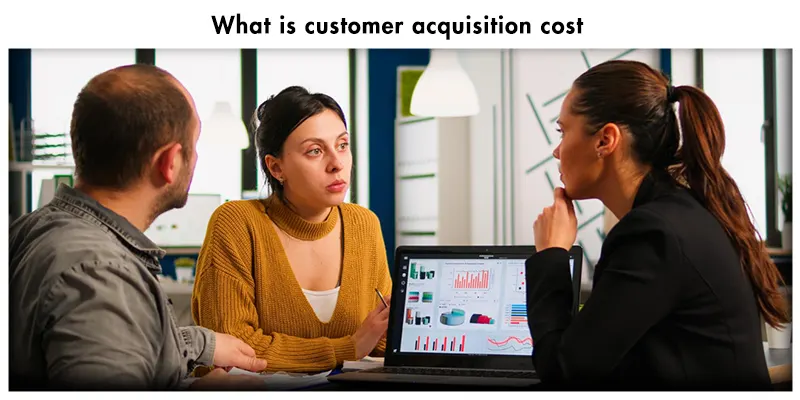
Customer acquisition cost (CAC) is a metric used to determine the cost of acquiring new customers using various sales and marketing strategies. It is a really important metric to measure how your sales and marketing efforts are doing. These costs include any investments you made to promote your food and beverage products including materials purchased, salaries of employees, ad spend, etc. Generally, CAC is calculated for a period of time, i.e. 1 week or month, etc.
How to Calculate Customer Acquisition Cost?
Now, let’s help you calculate customer acquisition cost before you try to reduce it! It is really simple to calculate CAC. You first need to list down all the costs you incurred to sell your food and beverage products.
Here’s a list of factors which can be included:
- Marketing expenses (advertising, social media, content marketing, etc.)
- Sales and commissions
- Employee salaries related to customer acquisition
- Software and tools used for customer acquisition
- Any other relevant costs
Now add up these costs and note down the total number of customers acquired!
Here’s the formula:
CAC = Total Cost of Acquisition / Number of Customers Acquired
Divide the total cost of acquisition by the total numbers of customers acquired within a period and you will get the cost you incurred to sell your food and beverage products for a single customer. Now let us explain why you need to reduce customer acquisition cost!
Why is it Important to Calculate Customer Acquisition Cost (CAC)?
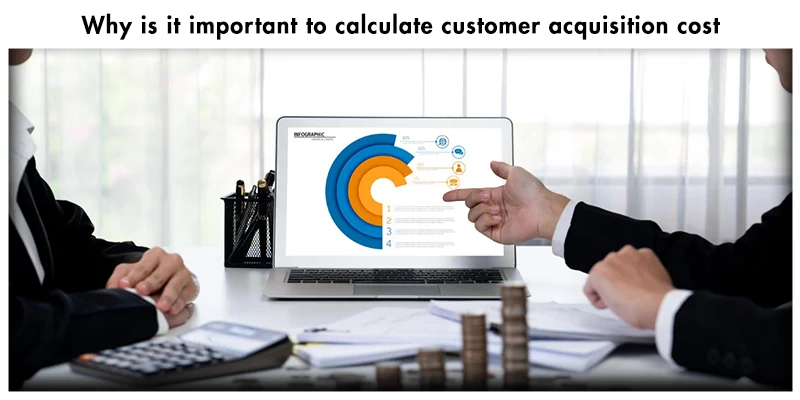
Analyzing the customer acquisition cost (CAC) is important for every food and beverage business because it provides valuable insights into the effectiveness of your customer acquisition strategies. Here are three significant factors to help you understand better!
- Enhanced Budget Preparation: Understanding the CAC will help you build your sales and marketing budgets better than ever before. When you keep on trying different customer acquisition efforts, it will help you determine how each of these strategies are working independently. Hence, helping you form even more tailored budgets.
- Set Product Pricing: When you calculate the CAC, you will be able to make amends in the pricing of your food and beverage products. For instance, you might want to raise the costs of your products if the CAC is high, or vice versa.
- Setting Realistic Growth Targets: Calculating business CAC will help you set actual growth targets and keep track of growth over time. You can keep smaller targets within a small time and improve by making data-driven changes in your customer acquisition strategies.
Moreover, we had a few more reasons which are not mentioned in the list such as measuring sales and marketing return on investment (ROI), and improving customer acquisition strategies.
8 Ways To Reduce Customer Acquisition Cost For Your F&B Business
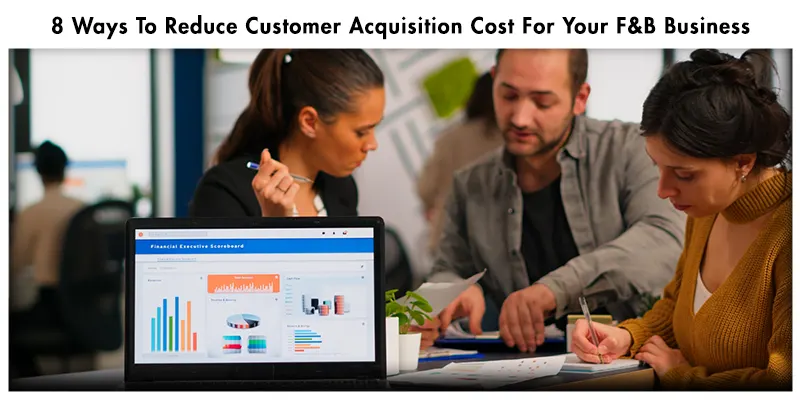
Here are the 8 ways in which you can reduce customer acquisition cost for your food and beverage business:
Deeply Understand Your Target Audience
Imagine your sales and marketing efforts get wasted because you were unable to reach your actual target audience. Hence the first step towards lowering customer acquisition cost is to study more and more about your ideal audience. For instance, being a food business, reaching a customer who is trying to look for beverages will be a waste of sales and marketing money!
All you gotta do for mastering the target audience is to understand the unique needs of your customers. Nowadays, customers are willing to give out information in exchange for personalized content, etc. Here’s a simple cycle for you to follow:
- Build Buyer Persona
- Use customer information to create personalized content
- Make buying easier for your customers
- Take proper care of your customer (customer support)
Repeat these 4 steps again and again to identify your true target audience!
Make Loyal and Recurring Customers
Retaining customers is an important way to reduce customer acquisition cost for your food and beverage business. Let us make it clearer, a returning customer would not cost as much as it would while acquiring a new customer. Get our point? Simply, you will spend more sales and marketing budget to acquire a new customer whereas the spend lowers when you look at retaining customers. Food and beverage businesses can reduce customer acquisition cost by retaining customers and providing them with a good overall experience. Many strategists suggest to give your customer’s importance. Which is true, however, all you need to do to make loyal customers is to provide efficient food and beverage products while ensuring content creativity.
Apply Resource Boosts To High-Performing Locations
To make your food and beverage business highly profitable you need to reduce customer acquisition cost. Hence, applying resource boost to high performing locations for your business can significantly drive profits. We are asking you to not invest much into areas which are not working. Instead, give boosts in sales and marketing to areas that are already performing and have the potential to grow even further.
And, here are we talking about your all out sales and marketing efforts including door-to-door promotion, digital marketing, etc. For instance, if your business is performing really well in South Asian Countries, then you might want to boost resources in those areas to generate more profits while manufacturing in large numbers.
Setup Affiliate Programs
Affiliate programs are a way to use someone’s influence to directly promote your food and beverage products. Compared to the other sales and marketing channels, affiliate marketing does not raise your customer acquisition cost too high. Also, compared to the ROI – they are overqualified! All you gotta do is give them a share of the amount of sale you’ve made and everything’s done. Additionally, there are no upfront costs – you need to make the payment after your product gets sold (talk about insecurity solving).
Using Smart Pricing and Bundling
You see all those lucrative prices for food and beverage products in the market? It is to make you think that purchasing in bundles may save you a lot of money. So, why aren’t you implying this strategy for your own food and beverage business. First up, you need to understand how pricing affects a customer’s thought about your product.
Secondly, you need to set smart pricing with unrejectable discount options to make customers buy your products. You can use various strategies including:
- Bundling your products and telling the customers to get the bundle because it would be cheaper.
- If your product is priced at $100, then try to curate values near a lower number. For example – you should keep it priced at $99.9.
Use Marketing Automation
One quick way to reduce customer acquisition cost for your food and beverage business is to utilize marketing automation. Under automated marketing, you save multiple resources while getting access to quality leads. One quick way is to ask your customers to submit their emails for reading a special recipe created by your brand. Now use that email to make repeated sales and generate higher profits!
Enhance Your Sales Funnel
Sales funnels need to be clearer when we talk about food and beverage products. Your customer needs to find you and then consume various information about the products, which eventually converts them into a customer. Any mistake in the sales funnel leads you to higher customer acquisition costs. Here are a few tips that you can follow to have a clear flow of customer acquisition:
- You can use data analytics tools to troubleshoot problems in your sales funnels.
- Make sure that the customer is going through the 8 different steps of sales funnels – prospecting, qualifying leads, initial meeting, defining prospect needs, making an offer, negotiations, closing the deal, and delivering the product.
Hire Athena Marketing International To Reduce Customer Acquisition Cost
Last but not the least, you should reach out to us – Athena Marketing International to enhance your global sales. We are a food and beverage business consulting firm. Up until now, we have helped hundreds of brands enter and generate profits in the international markets. Our unique and innovative strategies will reduce customer acquisition cost and deliberately boost profits.
You can benefit from our strong network of more than 1000+ retailers and distributors in the foreign markets. Think about it, our team will act as an extension of yours and hence will perform on your behalf in the market. We bring the expertise and together take your business to a whole new level. Reach out to us if you think we’d make the perfect match for your food and beverage business.
Customer Acquisition Cost vs Cost Per Acquisition
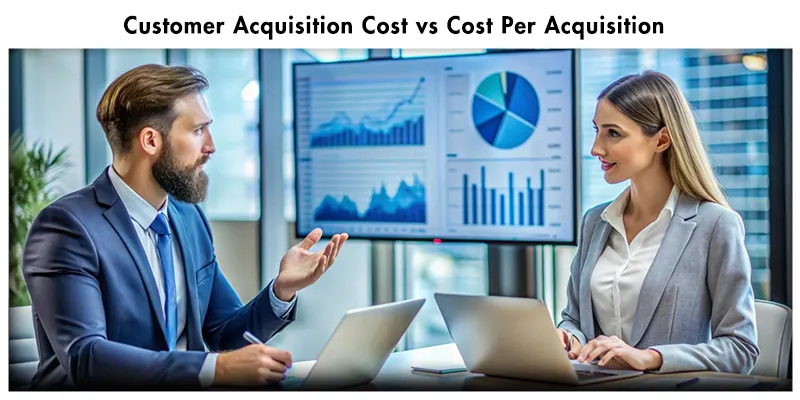
While CAC is used to identify the cost of entire sales and marketing efforts made for acquiring a single customer, cost per acquisition is a more campaign-oriented metric used to identify cost incurred by getting a customer by a specific marketing campaign. These might be two different names, but cost per acquisition (CPA) is an internal term of CAC (explanation – multiple CPAs add up to become the customer acquisition cost).
CAC focuses on the final goal of acquiring a purchasing customer, on the other hand CPA measures the cost made for a single marketing activity such as Google ads or meta ads. It is really important for food and beverage business owners to figure out these costs as they will help to make significant changes to your sales and marketing strategies ultimately boosting profits and growth!
How to Calculate Cost Per Acquisition (CPA)?
We helped you calculate CAC, so here’s an explanation on how to calculate CPA:
Cost per acquisition (CPA) = total amount spent on a campaign / number of conversions made.
You might be wondering why we included how to calculate CPA, it will help you with reducing the overall CAC (wink, wink)!
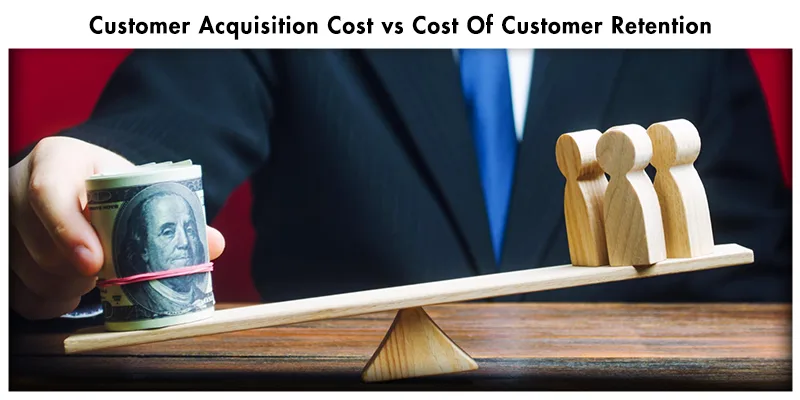
Both acquisition and retention costs are key metrics and equally important aspects of your customer acquisition and retention efforts. Both metrics help drive business growth, making it crucial for you to understand how they differ.
Customer acquisition vs retention costs:
Customer acquisition costs focus on attracting and converting prospective customers, whereas retention costs focus on nurturing relationships with current customers and boosting customer loyalty.
CAC is typically incurred upfront, at the start of the customer relationship. On the other hand, CRC is ongoing and incurred throughout the customer relationship.
Now let’s see when you should prioritize customer retention over acquisition and vice versa.
Wrapping Up Words
As the competition rises in the food and beverage industry, the customer acquisition costs rise in numbers! However, you can take it all under your control and reduce customer acquisition cost by implementing these 8 strategies. So, what are you waiting for? Become a food and beverage business owner with great command over your investments!
- Read Also: 15 Creative Food Business Ideas To Start in 2025
- Read Also: Best Food Business Consulting Services In USA
- Read Also: How To Increase Sales In Export Markets?
- Read Also: How To Start A Food Business: A 10 Step Guide
- Read Also: 10 Tips For Effective International Market Entry For Food & Beverage Brands
- Read Also: 10 Effective Food And Beverage Marketing Tips To Scale Your Brand Globally
- Read Also: How to Reduce Customer Acquisition Cost for Your F&B Business?

